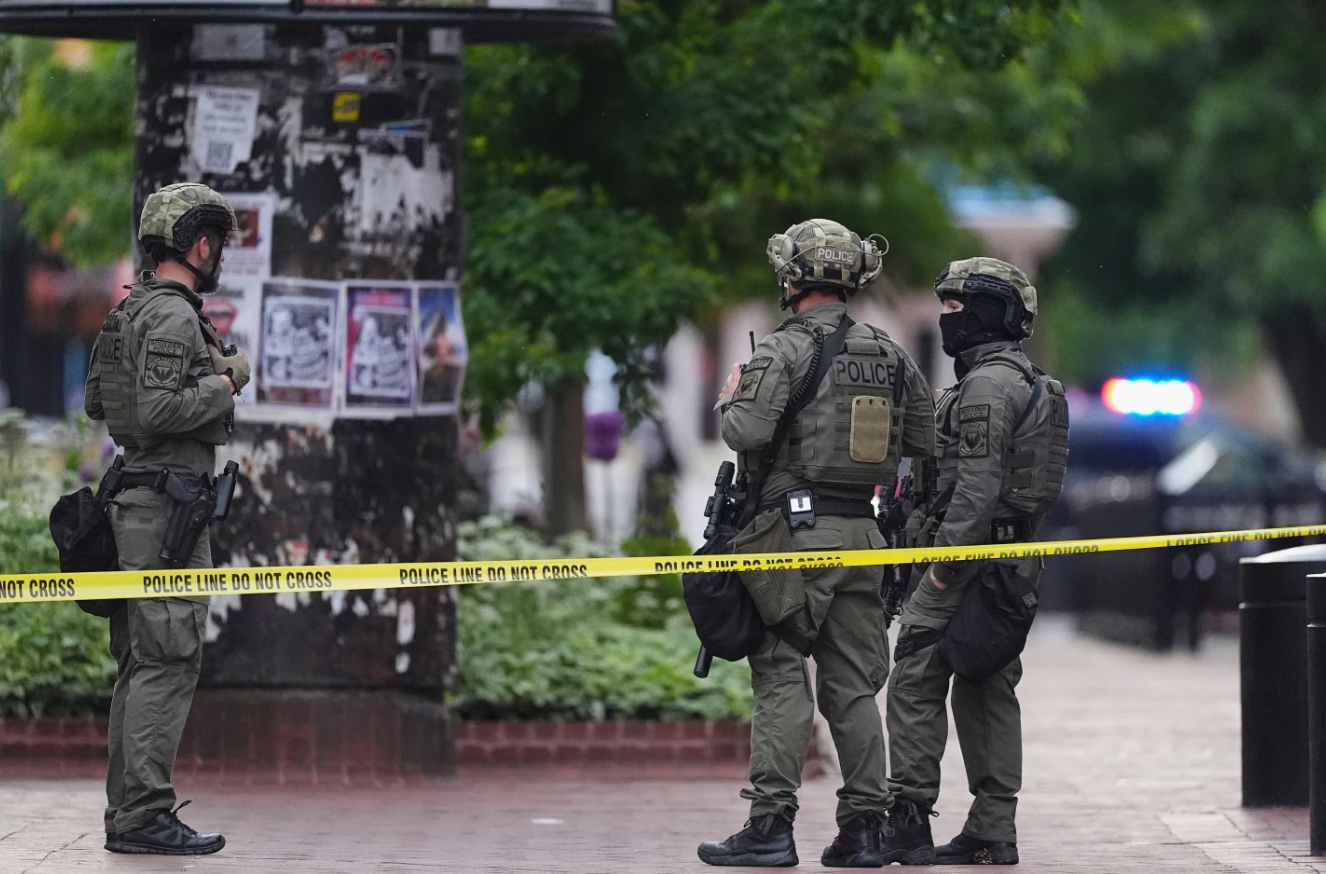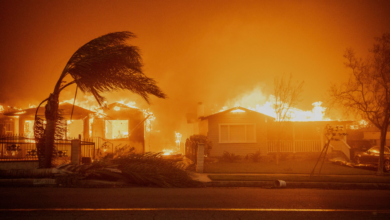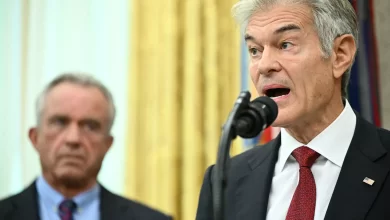Boulder, Colorado Attack: What We Know About the Suspect and Victims
Boulder, Colorado Attack: What A man attacked demonstrators at Boulder’s Pearl Street Mall, injuring eight. The FBI named Mohamed Sabry Soliman as the suspect and labeled it a terror attack.

BOULDER, CO (WE) — Federal authorities are investigating a violent assault on a peaceful demonstration in downtown Boulder. They have classified the incident as a targeted act of terror. A man, armed with a makeshift flamethrower and several incendiary devices, attacked a group advocating for the release of Israeli hostages held in Gaza. The attack has raised serious concerns about public safety and rising extremism. As a result, eight people suffered injuries, ranging from minor to severe. Community leaders and officials have widely condemned the violence, emphasizing urgent concerns about extremism, antisemitism, and public safety.
The suspect, identified by the FBI Denver Field Office, is 45-year-old Mohamed Sabry Soliman. Witnesses said he shouted “Free Palestine” during the attack. The victims were members of Run for Their Lives, a group supporting Israeli hostages taken in Gaza. These hostages were captured after the Hamas attack on southern Israel in October 2023.
According to FBI Special Agent Mark Michalek, Soliman acted alone in this ideologically motivated attack. Authorities explained that Soliman used a flamethrower-like device and threw two Molotov cocktails at the crowd. The incident occurred at Boulder’s Pearl Street Mall, a popular pedestrian area. It attracts tourists, students from the University of Colorado Boulder, and local residents.
Witnesses described scenes of panic and chaos. For example, Alex Osante stated that Soliman appeared to catch fire as he hurled an incendiary device. Moreover, video footage captured the suspect shirtless, holding bottles filled with flammable liquid, while bystanders screamed for help. Police responded swiftly, drawing their weapons as they approached and arrested Soliman at the scene. Shortly after, authorities transported him to a hospital due to his fire-related injuries.
During the investigation, officers discovered 14 additional unlit Molotov cocktails nearby, which suggests that Soliman had planned the attack carefully over time.
The eight victims, whose ages range from 52 to 88, include a Holocaust survivor. Boulder Police Chief Steve Redfearn reported that the victims suffered burn injuries and wounds from shrapnel. While some required treatment for serious burns, others sustained minor injuries. Graphic photos and eyewitness accounts showed a woman engulfed in flames, with bystanders rushing to extinguish the fire using bottled water.
In response, Rabbi Yisroel and Leah Wilhelm, co-directors of the Rohr Chabad House at the University of Colorado, called for unity and resilience. They said, “The immense wave of positive messages shows the strength of our community. We encourage everyone to celebrate Shavuot joyfully, attend the reading of the Ten Commandments, and recommit to our cherished traditions.”
The U.S. Department of Justice promptly charged Soliman with a federal hate crime on Monday. Court documents revealed that he had planned the attack for more than a year. Furthermore, according to an FBI affidavit, Soliman confessed that he wished to “kill all Zionist people” and declared he would carry out similar attacks again if given the chance.
On social media, FBI Deputy Director Dan Bongino affirmed that the FBI is treating the incident as ideologically motivated violence. “We will speak clearly on these incidents when the facts warrant it,” he stated.
Federal agents are also scrutinizing Soliman’s immigration status. The Department of Homeland Security confirmed that he entered the United States on a valid visa in 2022 and applied for asylum shortly afterward. However, his visa expired in February 2023, and he has since remained in the country illegally. DHS officials are collaborating with the FBI and Department of Justice to determine whether any enforcement failures contributed to this tragic event.
This violent attack comes amid a broader rise in antisemitic violence across the United States. Just last week, two Israeli Embassy staffers were fatally shot in Washington, D.C., reportedly by a man who shouted “I did it for Palestine.” Although authorities have not directly linked that incident to the Boulder attack, they warn that the ongoing Israel-Hamas war may fuel further violence.
Read More:
- Joni Ernst Defends Medicaid Cuts: “We All Are Going to Die” Sparks Backlash
- Federal Court Halts Ruling Against Trump’s Tariffs—for Now
- Judge Extends Block on Trump’s Harvard Student Ban
Meanwhile, Boulder Police Chief Redfearn cautioned against early assumptions about motive. “It would be irresponsible to speculate this early,” he said Sunday, adding, “Our detectives and federal partners continue gathering evidence and interviewing witnesses.”
Civil rights organizations, including the Anti-Defamation League (ADL), have called for increased federal resources to combat antisemitic hate crimes. ADL CEO Jonathan Greenblatt stated, “Violence targeting Jews and Israel supporters is unacceptable. Law enforcement must send a clear message that extremism has no place here.”
In response to the attack, security has been heightened at synagogues and Jewish centers nationwide, especially in major cities like New York City, Los Angeles, and Chicago. Local authorities are coordinating with the Federal Protective Service and the U.S. Capitol Police to ensure demonstrations remain safe.
Soliman faces the possibility of a life sentence if convicted. Prosecutors are likely to file additional charges related to weapons violations and attempted murder. His own admissions and the discovery of incendiary devices strongly support claims of premeditation and hate crime motivation.
For victims and the Boulder Jewish community, the road to recovery will be long. Family members, many choosing to remain anonymous, have shared their trauma. One relative said, “We gathered to support those suffering overseas. We never expected to face hate here at home.”
The Colorado Governor’s Office pledged support in the wake of the attack. Governor Jared Polis condemned the violence, saying, “There is no place for hate-fueled violence in Colorado or anywhere in the United States. We stand with the victims and the Jewish community.”
This incident raises pressing questions about extremist ideologies proliferating online, gaps in immigration enforcement, and the need for improved early threat detection. Congressional hearings are expected soon to explore whether current hate crime laws and immigration policies sufficiently address domestic terrorism.
For now, Boulder remains vigilant. Police have increased patrols at synagogues, schools, and community centers. The organizers of Run for Their Lives have vowed, “We will not be intimidated by hate. We remain committed to advocating for hostages, peace, and justice.”
Ultimately, the case against Mohamed Sabry Soliman will influence ongoing national discussions about hate, terrorism, and the limits of free expression in a deeply divided country.















